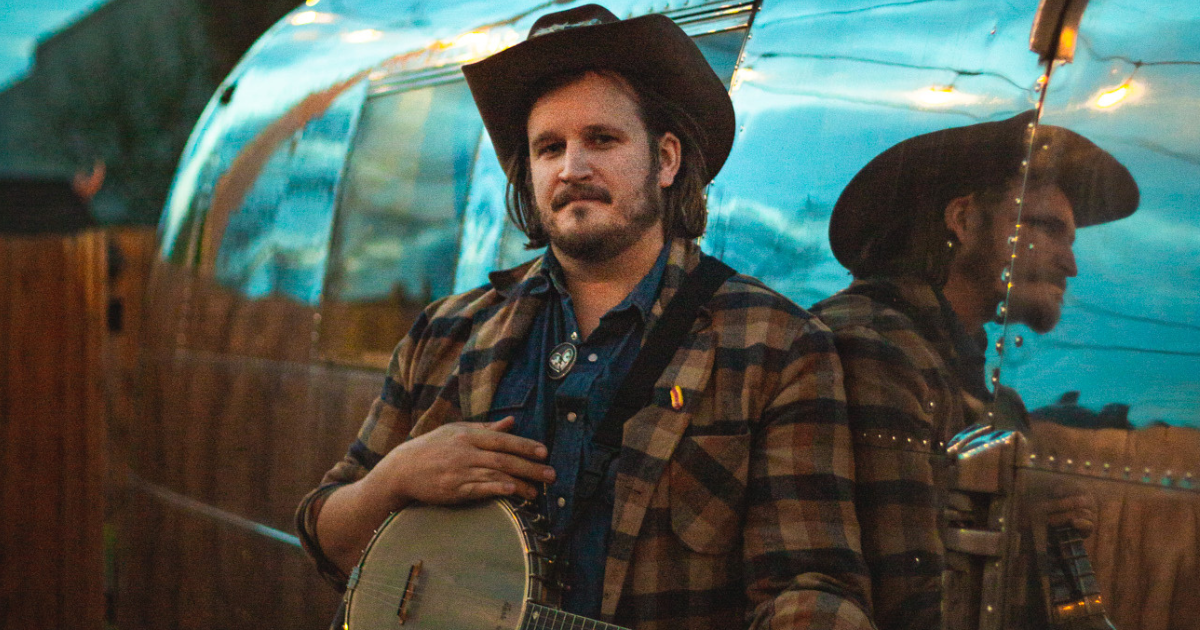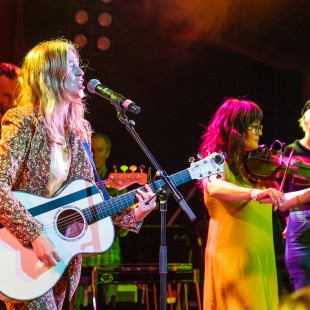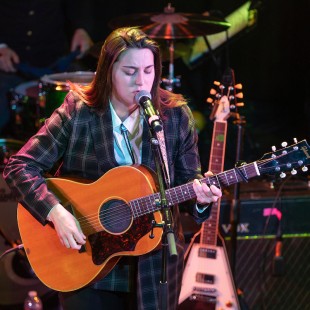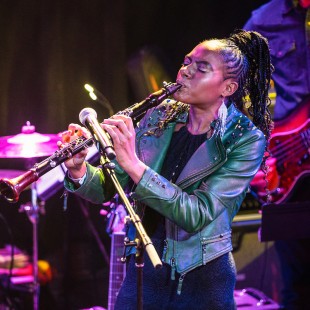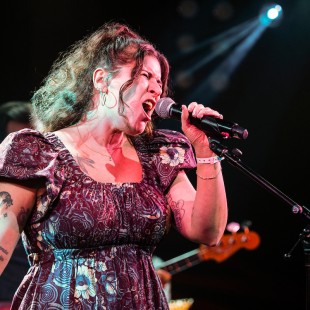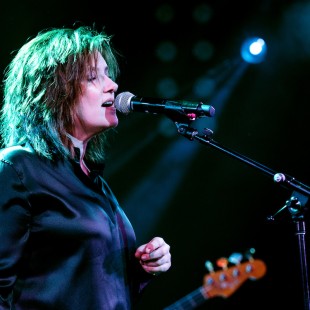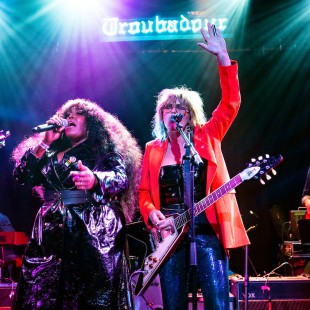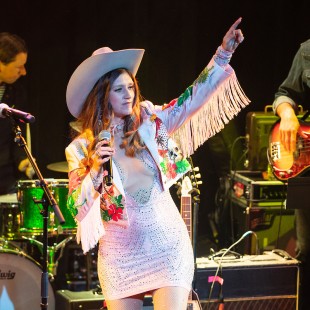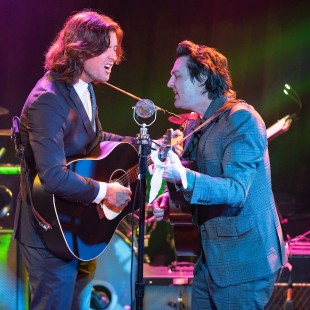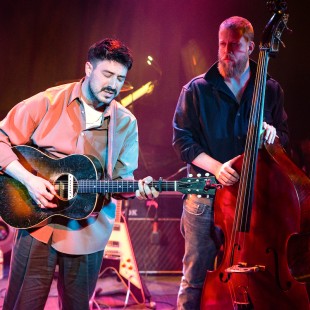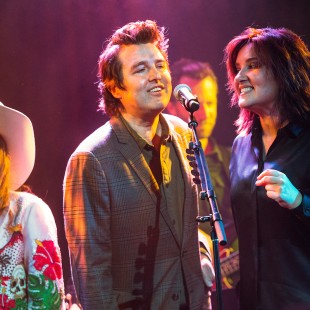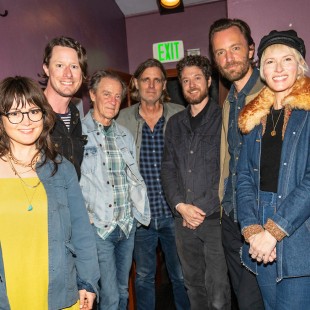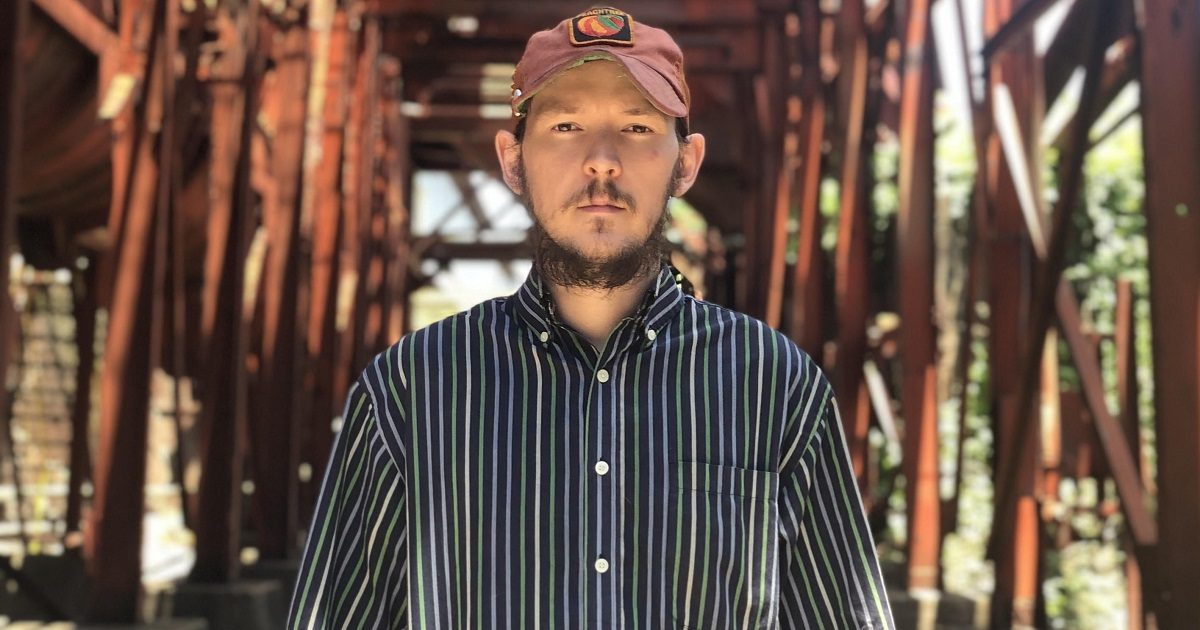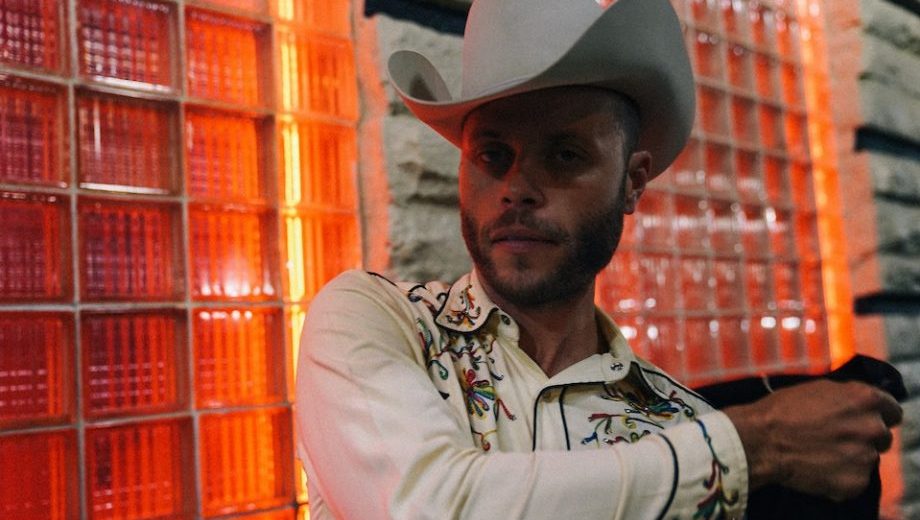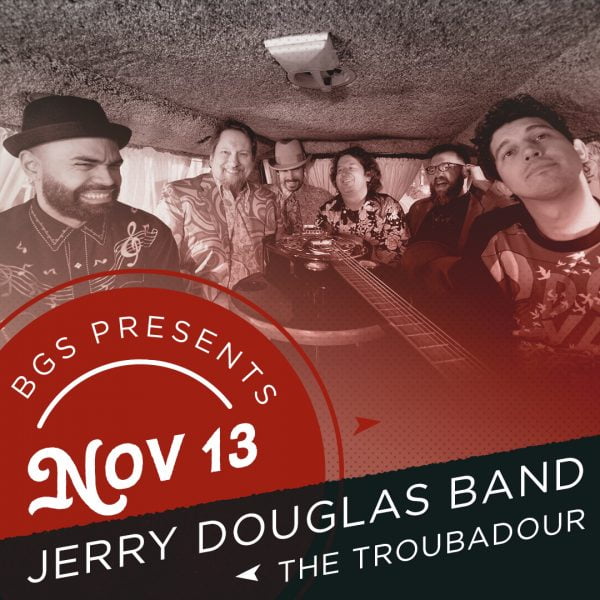The first time I saw Willi Carlisle was in Buffalo, New York, in the tiny basement of an old protestant church that Ani DiFranco bought. There couldn’t have been more than thirty or so people there – a queer couple or two holding hands, a mom and a dad plus their kid, a cluster of 20-year-olds too hip for their own good. I see twenty or so shows a year – neighborhood guitar pulls, little club gigs, shows in big theaters, and every so often an arena. Willi was world class, one of the best I’ve seen. He told stories in between the songs, tracing an anti-Vietnam song well into the 17th century, or talking about Mexican ballads and the power of the concertina, or about how a hometown story is both archetypal and plain, universal and contained to a very specific time and place.
As the Buffalo concert suggested, Carlisle is at his best when limning complex networks of historical figures, news, what is called “traditional music,” contemporary poetics, and the natural world. He is a lyric poet, in the most classical sense.
This fact could be seen especially in a track from his new album Critterland, “Two-Headed Lamb.” It’s an adaptation of a Laura Gilpin poem, which Carlisle translates and extends. I’ve always thought that the poem was a bit too glib, a bit too self-assured of its own moral ending.
Carlisle talks about the whole cycle of growth, how it is not a singular freak birth in a generic field, but how the freakish quality of a two-headed calf and the weirdness of that birth functions within a cycle: The farmer who finds it, persimmons growing out of season, a coyote picking at the corpse of a ewe, even “robins singing in an old growth tree.” As a creator, the song becomes an act of interpretation – a poem becomes a song, a song not quite a cover, a critique of a poem that might not work, but the working of the poem depends on an audience.
When asked about the poem, Carlisle responds:
As I explored Gilpin’s poem with friends and strangers, it’s been no surprise that “Two-Headed Calf” seems well-known in both rural and trans communities and their significant cross-section. And why not? It’s a poem about a creature too beautiful for this world, [whose] magisterial dimorphism and tragic death conjures real-world magic. Someone born feeling as if they have no gender, two genders, the wrong gender, might feel this magic themselves. So would someone who’s pulled an ailing calf from the womb of their beloved milk cow with a rope or their bare hands.
That’s a generous reading, a reading done in community – one that expands what an audience could mean, one that is as cyclical and as wide as open as could be. It’s generous to Gilpin, as well.
This whole act of semi-translation also explains the concept of Critterland, which Carlisle describes in our wide ranging conversation as a place where “…we have to dismantle the house, make something different. I think what we inherit (our bodies, songs, tools, houses) makes us the living proof of the suffering of our forebears. We’ve got their noses, their colonial holdings, their drinking problems.”
In a culture, we take and hold onto what is useful for us and the results of that taking we try to build more carefully.
In the list of animals that Willi names in the title track – “Yeah, the sparrow on the wing taught mе to find you/ And the opossum knows his own mind more than I do” – there is hope in being able to craft houses and buildings like the scuttling of everyday creatures. If the possum and the sparrow can (and may I add, the racoon, the crow, the squirrel, every city or country creature) then we can, too. Which is why the best of Carlisle’s songs are ones which mention small spaces – a mother singing “In the Sweet By and By” in the kitchen, or the devastating song “The Arrangements,” with its complex, sometimes compassionate, sometimes ruthless processing of a father who drank too much and loved too little, or in “The Great Depression,” a verse that limns Carlisle’s ancestors:
From the needle-prickin’ mothers who were never taught to read
To the barefoot hungry soldiers that enlisted at 16
Oh in my dumb debasement, I still find great relief
That on the lam and on the dole they counted themselves free…
Those are local examples, small, and there is some argument within them. Like some great folk singers, Carlisle’s sense of local spaces, his skill at deep readings of landscape, is a primary example of his excellence. I think of him as an Arkansas singer, but he has to earn a living – part of that possum life. Carlisle travels constantly, touring half the year or more to make enough money to be somewhere he feels home.
He explains it thusly: “One of the hard facts about touring so hard is that I haven’t really lived in Arkansas for more than a few months a year in six or seven years now. Hell, currently I’m living in southwest Missouri, just over the border. I don’t feel excluded from my life back home, usually, when I’m on tour. “
It’s another network, a cycle of creation, and intimacy. In a song called “Higher Lonesome,” is there something monastic there? Setting up lonely feelings to a higher power? Is he quoting the 1950s Texas technicolor film? Is it a song about drinking?
It’s all of those things and none of those things. He mentions his community and where they are in the world:
…By the time the ride is over, I’m sure I’ll ask to ride again
See the snowfall in Wyoming, strung out on Johno’s coke
Keep a mailbox in Nebraska, so I know the Lord knows
She can write a letter once a year and say that we’re still close
I can put my cents on Benjamin hear the songs he wrote…
The privacy of this song marks the depth and complexity of another, the last work on the record “The Money Grows On Trees.” It’s a 10-minute recitation, a story told in intense, Appalachian Gothic detail, about corruption and a young drug dealer gone wrong.
If any texts could be considered lonely, even in the midst of Carlisle’s careful noting of connections, these are. For example, when in another song, he sings to a “Jaybird” – another of those scuttering creatures, that eats off what is left. He says to the jaybird, that “he’s doing just fine, his head is a wreck and his chest is on fire.” This line, with neither denial nor irony, is a kind of Beckettian notice about continuing on despite the ongoing, struggling moments.
The whole album speaks of a (dis)regulation of feelings, slipping into the natural ebbs and flows of the titular Critterland so the work can continue. In the album, and in his live shows, a cobbling together happens as a kind of hope, but a hard-won kind.
Or, to give Carlisle the last word:
I don’t believe in despair – it would make me hate things, and I cannot bear to do that. So, alas, that means the only other option is the hard one: hope. Here in the first world we have unimaginable resources and power, so much more than we need. We could, realistically, reduce climate change, enshrine human dignity, end global poverty, and celebrate untold freedoms in our lifetimes. Why wouldn’t we? I’m naive, surely. Maybe I’m an idiot, and maybe I’m just obsessed with getting “what’s mine.” Music is a business, after all.
The work is the thing – to pay the mortgage, to tell stories that need to be told, to adapt stories that have been forgotten, to cry or laugh, to mourn, to change people’s minds politically, to seduce or to be seduced.
Carlisle’s practice, in an aching two-step, does this with tradition. There’s a reason why he’s a square dance caller, and there’s a reason why, for him, the dance goes on.
Photo Credit: Jackie Clarkson
